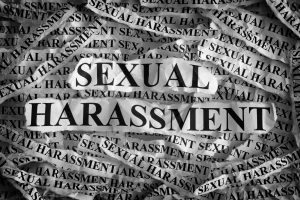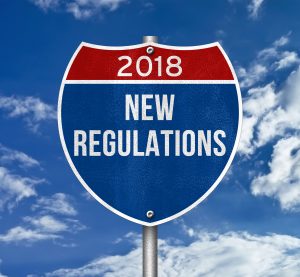California employers may not like what they see during the state’s 2018 legislative session. Now that the deadline for introducing new bills has passed, we can see what has been submitted, and get an idea of where this year’s focus will be. Once again, it appears the focus is on imposing new requirements or obligations on employers. For 2018, it seems, many legislators are looking to further increase employers’ liability or responsibility for workplace sexual harassment.
7 Bills Employers Should Watch Closely
- AB 3080: The current text of this bill relates to the E-verify system, but Assemblywoman Lorena Gonzalez Fletcher has announced plans to amend this bill to prohibit mandatory arbitration of sexual harassment claims, as part of a series of legislations designed to better help sexual harassment victims seek justice. AB 3080 would prohibit employers from requiring their new hires to sign mandatory arbitration agreements as a condition of getting the job, continuing in the job, or receiving an employment-related benefit. Employers would be forbidden from retaliating against any employee who declines to sign such an agreement. The bill also includes a “whistleblower” provision prohibiting employees, prospective employees or independent contractors from publicly disclosing any sexual harassment that they experienced or witnessed.
- AB 3081: This is another bill from Gonzalez Fletcher’s series of bills, which will be amended to establish a presumption that an employee has been unlawfully retaliated against if any negative job action occurs within 90 days of their reporting sexual harassment. AB 3081 would also establish a hotline for any employee seeking guidance after being sexually harassed or witnessing sexual harassment, and would create an avenue through which workers would be able to file reports anonymously.
- AB 1870: This bill, introduced by Assemblywoman Reyes seeks to extend the statute of limitations for filing an administrative claim for harassment with the Department of Fair Employment and Housing (DFEH). Under current law, employees have one year to file, and this bill would extend that period to three years. AB 1870 is not limited to sexual harassment, however, and would extend the statute of limitations to three years for all forms of employment and housing discrimination.
- AB 1867: Another bill introduced by Assemblywoman Reyes that would require employers with 50 or more employees to maintain records of sexual harassment complaints for 10 years.
- SB 1300: Senator Hannah-Beth Jackson introduced this bill, which states that it would provide, in claims alleging the employer failed to take all reasonable steps necessary to prevent discrimination and harassment from occurring, the plaintiff is not required to prove that they endured sexual harassment or discrimination. SB 1300, if passed, would also prohibit release of claims under FEHA in exchange for a raise or a bonus or as a condition of employment or continued employment.
- SB 1038: Employers are already subject to this law, but this bill is an amendment, introduced by Senator Connie M. Leyva, which seeks to add personal liability into employer retaliation cases. The amendment would impose personal liability on an employee of an entity for discharging or discriminating against a person who has opposed any prohibited practices or has filed a complaint, testified, or assisted in any proceeding for a violation, regardless of whether the employer or entity knew or should have known of that employee’s conduct. Although an individual can already be personally liable under FEHA for harassment, the California Supreme Court ruled 10 years ago in the Jones v. The Lodge at Torrey Pines Partnership case that personal liability does not extend to retaliation claims.
- AB 2366: This bill, introduced by Assemblyman Rob Bonta, prohibits an employer from taking adverse action against an employee who is an immediate family member of a victim of sexual harassment (as well as domestic violence, sexual assault, and stalking) for taking time off work to provide assistance and support to the victim seeking relief. “Immediate family member” includes a spouse, child, stepchild, siblings and stepsiblings, and parents and stepparents.
Sexual Harassment Training Bills a Big Focus

Sexual harassment prevention training is a big focus for 2018. Under current California law, employers with 50 or more employees are required to provide at least two hours of sexual harassment prevention training to supervisory employees every two years. Five new bills seek to expand the current sexual harassment prevention training requirements:
- SB 1300 would require employers of all sizes to provide two hours of sexual harassment prevention training to all employees (not just supervisors) within six months of hire and once every two years.
- SB 1343 would require an employer who employs five or more employees to provide at least two hours of sexual harassment training to all employees by 2020, and once every two years thereafter.
- AB 3081 an additional amendment to this bill will require employers with 25 or more employees to notify workers of their rights regarding sexual harassment and provide prevention training to all employees.
- AB 3082 would provide specific protections for in-home support services workers and aims to create effective sexual-harassment training for both workers and clients.
Nondisclosure Agreements are on the Chopping Block
The use of nondisclosure agreements or confidentiality provisions in settlement agreements is a major concern for legislators because they allow perpetrators of sexual harassment to retain secrecy, which may allow them the opportunity to victimize other people in the future. Four bills, SB 820, AB 3057, AB 3109, and SB 954 aim to restrict or prohibit the use of such agreements. While some of these bills may not currently apply to employers, it’s important to watch how the laws surrounding nondisclosure and settlement agreements evolve over the 2018 legislative season.
Other bills that are aimed at protecting sexual harassment victims, expanding accountability for sexual harassment cases and preventing sexual harassment in the future include; AB 1761, AB 1750, AB 2713, and SB 224.
One Bright Spot for Employers
There is at least one proposed bill that is aimed at helping employers rather than imposing more regulations on them.
AB 2770: Assemblywoman Jacqui Irwin introduced this bill, which is sponsored by the California Chamber of Commerce, which seeks to remedy the situation that many employers face when trying to avoid defamation claims filed by employees. It would protect as “privileged” complaints of sexual harassment by an employee to an employer based on credible evidence and communications by the employer to interested persons and witnesses regarding a complaint of sexual harassment during an investigation. The bill would also clarify that an employer, when telling another prospective employer whether they would rehire a former employee, may indicate that their decision is based on the determination that their former employee engaged in sexual harassment.
It’s unclear how many of these bills will be made into law, but it’s certainly important for employers to keep an eye on them throughout the 2018 legislative season. Stay tuned to the Emplicity for more legislative updates on this year’s bills and how they may affect California employers.
Emplicity understands that HR
Outsourcing should be simple and meaningful. As a Professional Employer Organization (PEO), we strive to be a great partner in supporting your business. If you would like to request more information on how we can assist your needs, please reach out to us at 877-476-2339. We are located in California – Orange County, Los Angeles, and the greater Sacramento and San Francisco area.
NOTICE: Emplicity provides HR advice and recommendations. Information provided by Emplicity is not intended as a substitute for employment law counsel. At no time will Emplicity have the authority or right to make decisions on behalf of their clients.


